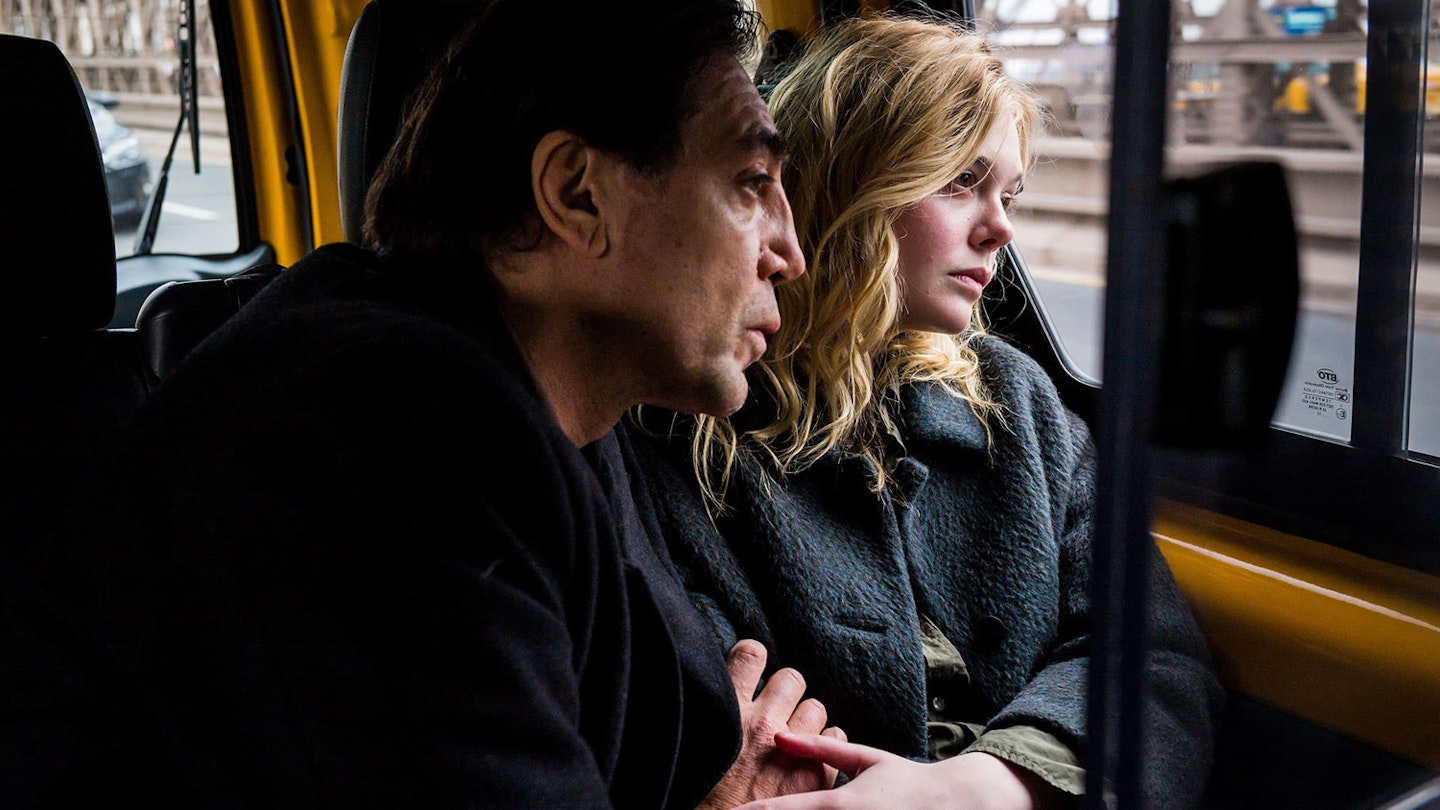The Roads Not Taken reunites trailblazing British feminist director Sally Potter with Elle Fanning, the star of her brilliant study of female friendship in the age of nuclear angst, Ginger & Rosa. This new film is further proof that director and star have found a precious harmony with each other. Fanning’s performance scorches the screen as she plays Molly, a young woman caring for her father Leo (Javier Bardem), a Mexican writer who is experiencing very distressing symptoms of dementia. Molly is torn between her deep love for her father — she takes tangible delight in his company — and her growing exhaustion. It’s a very modern portrait of a working woman on the brink of burnout.
Although the subject and style are different, The Roads Not Taken is as precise and contained in form as Potter’s last film, 2017’s The Party, which played out a disastrous dinner party in black and white. This film is shot in colour, for one thing, with cinematographer Robbie Ryan modulating three different palettes for each timeline and alternately finding escape and claustrophobia in the widescreen frame. Still, this is a starkly simple story, told with economy and emotional impact in fewer than 90 minutes.
As Leo, Bardem’s usually handsome face takes on an eerily blank quality, his head seeming too heavy for his shoulders and his feet unsteady.
When Molly goes to collect Leo from his Brooklyn apartment, he’s too out of it to answer the doorbell. She cajoles and drags him to medical appointments, with a detour to the hospital and a clothes shop. The closeness of their relationship (captured in cute mirror-image profile shots) is tested by Leo’s erratic behaviour, but mostly by the unthinking cruelty of others: a brusque eye-doctor, a shopper who racially abuses him, and his second wife, Molly’s mother, played acerbically by Laura Linney.
Throughout the day, Leo’s consciousness slides into another dimension. Shockingly, he hurls himself out of a cab while reliving an argument with his first wife, played by Salma Hayek. As Leo, Bardem’s usually handsome face takes on an eerily blank quality, his head seeming too heavy for his shoulders and his feet unsteady: he’s living more inside his skull than he is in the present reality. Molly is left to shoulder that reality alone, for both of them, and asks her father poignantly: “Where have you been all day, Dad?”
Although this scenario could run to the melodramatic, Potter’s view of Leo’s disease is less sentimental and in its own way surgical. Leo finds little comfort in retreating to his memories, but a series of traumas that he must sift through, analyse and reconcile.
There’s a feminist bulletpoint, too, in the realisation that Molly’s caring responsibilities have set her career back. When she was an infant, Leo left the family and travelled to Greece to write — an unsympathetic, not to say selfish act. Molly, too, will have to make a choice between work and life, and may also regret the road not taken.

